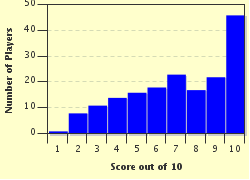Quiz Answer Key and Fun Facts
1. Bavarians have a good eye (and ear) for foreigners. So don't be too surprised if you'll be dubbed a "Prussian", because that is the universal Bavarian term for anyone from, well, outside Bavaria. How do you say "Prussian" in Bavarian, then?
2. If you go in late September, you'll be right in time for the world's biggest folk festival, the Oktoberfest. However, people in Bavaria, especially Munich, rarely use that term. How do they refer to the festival instead?
3. The Oktoberfest is most famous for its huge beer tents and the strong beer that is being served in one-liter steins. How do you typically order one of these in Bavarian?
4. The essential battle cry in any of the big beer tents at the Oktoberfest is to shout "Oans, zwoa, g'suffa!" It is typically preceded by the oompah band intoning "Ein Prosit der Gemütlichkeit" (which roughly translates as, "Here's to a cozy atmosphere"). You will soon find yourself shouting along with everyone else, but what are you actually shouting?
5. Which Bavarian term denotes both a soft drink and a good friend?
6. Which are the two meanings of "Radler" in Bavarian?
7. It seems to me that the term "lederhosen" is fairly well-known in the English language. But what do you call the female equivalent, i.e. the traditional Bavarian dress for women?
8. Not even Bavarians doubt that Johnny Depp is a brilliant actor. His last name, however, is rather unfortunate and a constant source of amusement to them. What does the Bavarian term "Depp" mean?
9. Bavaria is famous for its beer gardens, where everything is self-service and you are allowed to bring your own light meal, your "Brotzeit". Which of the following is NOT typically included in your bring-it-yourself Brotzeit but would rather be purchased on the premises themselves?
10. What are the two most typical Bavarian greetings (both in the sense of "hello"/"good morning" etc.)?
Source: Author
PearlQ19
This quiz was reviewed by FunTrivia editor
stedman before going online.
Any errors found in FunTrivia content are routinely corrected through our feedback system.

